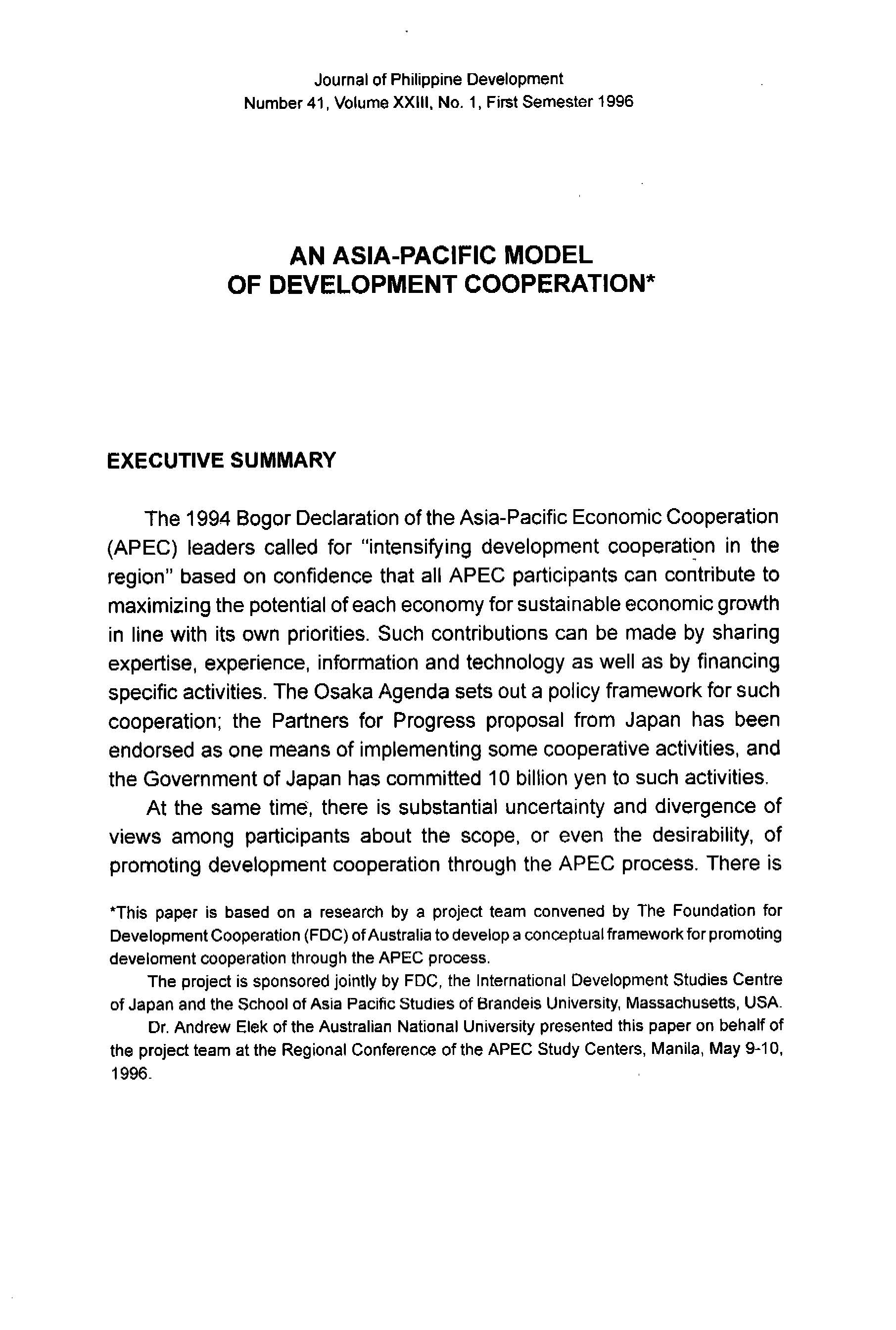Abstract
This issue examines key challenges and opportunities within the Asia-Pacific Economic Cooperation (APEC) framework, focusing on trade liberalization, labor mobility, financial market integration, and policy coordination. One study builds on the Osaka Action Agenda, refining APEC’s development cooperation strategy by establishing clear objectives and guiding principles. Another paper explores how globalization and trade liberalization influence labor flows across APEC economies. As global financial markets become increasingly interconnected, concerns over external vulnerabilities grow. A study on Philippine macroeconomic policy coordination highlights the importance of strategic responses to mitigate risks. An analysis of the United States’ role in APEC underscores its economic and geopolitical stakes in fostering trade and investment ties while addressing challenges in public engagement and long-term cooperation. With economic interactions intensifying, trade disputes have become more frequent. A paper in this issue presents a framework for analyzing the cultural aspects of trade conflicts, particularly involving China. The complexities of APEC’s trade liberalization efforts are explored, emphasizing the necessity of sustained negotiations and extensive research to establish effective strategies for reducing trade barriers.
Articles
SHARE
